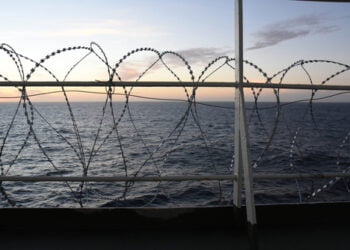The Government of Panama rejected the claims made by United Against Nuclear Iran (UANI) and explained that Panama has already de-flagged over 650 ships since 2019 to comply with UNCLOS and is supporting efforts against terrorism financing and illegal fishing.
Panama has responded to criticism from the non-governmental organization United Against Nuclear Iran (UANI), which last week accused Panama of not doing enough to act against sanction violators. According to UANI, nearly one in five vessels suspected of transporting Iranian oil sails under Panama’s flag.
As stated Panama, through its Panama Maritime Authority (AMP) has de-flagged more than 650 ships from its registry since 2019 in compliance with the United Nations Convention on the Law of the Sea (UNCLOS) and in line with Panama’s efforts to combat the financing of terrorism and illegal, unreported and unregulated fishing.
Furthermore, the Government of Panama maintains close collaborations with the Government of the United States of America through the U.S. Embassy in Panama and through direct communications with the Department of State regarding the Ship Registry and other security issues of shared importance.
The statement highlighted that as part of the nation’s international commitments, on August 2019, a Memorandum of Understanding (MoU) known as the “Registry Information Sharing Compact (RISC)” was signed between Liberia, Vanuatu, Marshal Islands, Dominica, Antigua & Barbuda, Moldova and Panama, in which it was agreed that when a Flag Registry cancels or initiates a sanction or cancellation process, or refuses to register a vessel due to a sanctionable activity, said Registry shall immediately notify the other members of the details of that vessel, providing a description of the sanctionable activity to publicize the identity of ships, companies, or groups that behave contrary to the interest of the international maritime community.
Following the signing of the MoU, AMP issued Resolution No. 106-048-DGMM on August 19, 2019, imposing sanctions on vessels that deliberately deactivate the LRIT or AIS systems.
To remind, Panama recently has also introduced stricter rules for ship-to-ship (STS) oil transfers involving its-flagged vessels to curb sanctions evasion and illicit maritime activities. These measures align with IMO and MARPOL standards, reinforcing Panama’s commitment to maritime safety and transparency, the Panamanian Maritime Authority explained.































































